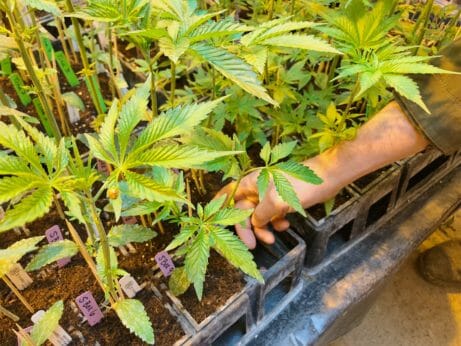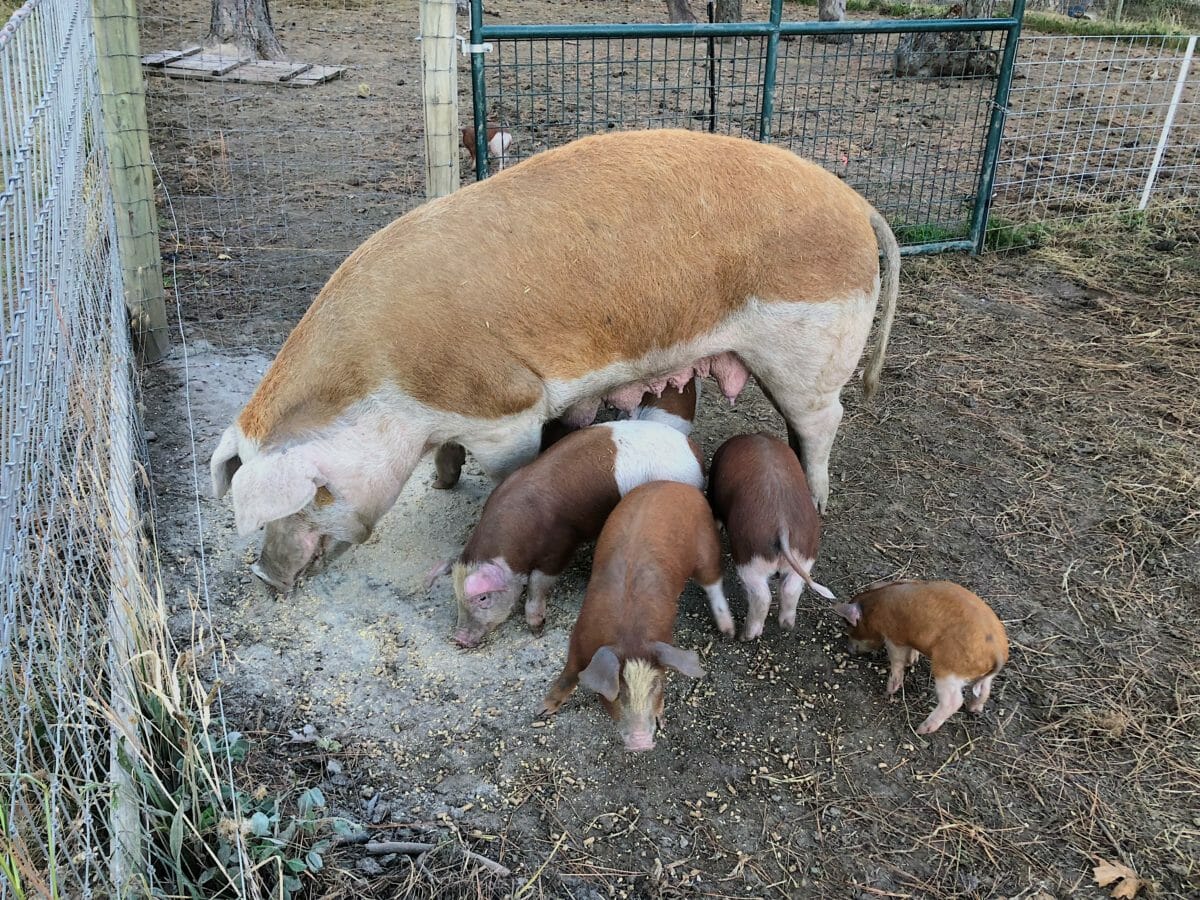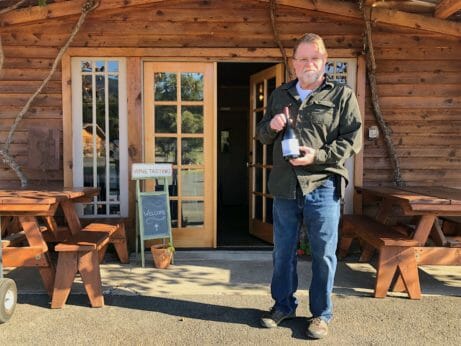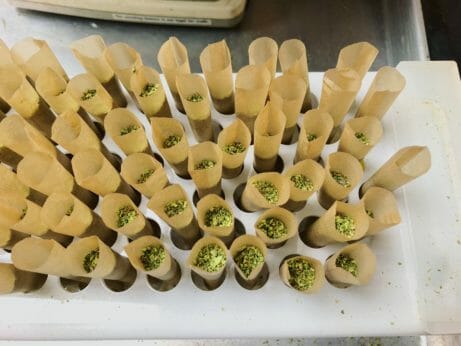From vineyards to pot plants, monoculture is out and weekender fun is in.
Applegate Valley is a sheltered sanctuary for agricultural outsiders. On one side of the Applegate River are wineries; on the other side are newly legal marijuana growers. The area’s sheltered geography and permissive culture have attracted innovators and outlaws for generations. It’s isolated by mountains, like an Appalachian “holler,” but it retains the evergreen cultural spirit of Oregon.
Joe Ginet’s immigrant grandfather planted grapevines in the 19th century near Applegate Valley in Jacksonville, Oregon. Prohibition devastated the grape-growing industry, but thanks to Ginet’s perseverance, his grandfather’s dreams were eventually realized. It took decades of saving and selling milk on his dairy farm for Ginet to put his grape-cloning operation into practice as a winery. Now, Ginet is president of the Applegate Valley American Viticultural Area (AVA). His excellent wines are the fruit of his persistent cloning efforts, using cuttings sourced from his family’s farm in the Savoie region of France. His milk-processing equipment has been swapped out for French oak barrels, and the dairy cows have been sent to graze on the grass on his cattle ranch. Today, the Ginet family sells steaks and delicate old-world wines from his farm, Plaisance Ranch.
With the legalization of recreational marijuana in Oregon, a new generation of post-prohibitionists has set up shop. Aaron and Mariah Mink of The Cannabis Farm were especially well positioned in the newly legal cannabis trade. Mariah belongs to three generations of female marijuana bootleggers. When she met Aaron, a self-taught grower who grew up on a cattle ranch in Idaho, they had everything on their side to start a successful farm — that is, except for the law. When the law changed in Oregon, they had the farming expertise required to grow exceptional herb in a market that was suddenly flooded with inexperienced pot growers.
The Cannabis Farm has developed some new products that aspire to a wine-tasting experience when sampling marijuana strains. The “canniflight” offers a taste of three strains in pre-rolled joints. The flight organizes the strains to demonstrate complementary terpenes, similar crystal appearances or agreeable types of high. Terpenes are aromatic compounds in plants that give them their unique smell. A flight of “fruit” will offer a smoker the luscious scents of strawberry banana, blackberry cream and banana split. Someday, when the law allows, they hope that they can invite wine tourists to their tasting room. Until the regulations change, they use their ranch, Twisted Madrone Ranch, to engage neighboring farmers and passing wine tourists.
The Cannabis Farm purchased a second parcel of land, Twisted Madrone Ranch, to raise heritage hogs, cattle and poultry. The ranch helps them find common ground with their non-smoking neighbors. They feed their pigs apple-mash leftovers from the nearby Apple Outlaw cidery. Their heritage pork breeds include Hereford, Red Wattle and the furry Mangalitsa.
“This one is named ‘Moo,’” Aaron tells us about a Mangalitsa hog. “It’s a pig that looks like a sheep and has a cow’s name.”
Mangalitsa is a very fatty breed beloved by chefs. It takes particularly well to curing, so Twisted Madrone Ranch aspires to get its furry pigs into the prosciutto slot on the cheeseboard at its favorite local winery, Wooldridge Creek.
Wooldridge Creek is really more than a winery. It’s actually a multi-fermentation farm and Oregon’s first winery/creamery. Here, cheeses are made on-site at Crushpad Creamery, grapes are fermented into wines, meat is processed into charcuterie, and farm-grown vegetables are fermented into pickles. Eating and drinking at the winery gives visitors an opportunity to experience a homegrown and home-fermented taste of the region.
Monoculture is out in Applegate Valley, but it takes a lot of work to maintain diverse ranches and farms. Decades of steady progress have created opportunities for visionaries to realize more artistic visions in agriculture. One of the most ambitious projects is the current conversion of Troon Winery to biodynamics. New vines are being planted, and pastures are being cleared for sheep, apple trees and apiaries for pollination. Compost preparations are sourced from a neighboring dairy. The sweeping reshaping of the farm’s landscape comes a couple of years after a change to its winemaking philosophy. Vintages from 2014, when the winery changed hands, display new leanings toward natural winemaking. The change in farming practices will require years of work to realize, but when the project is complete, Troon Winery will be a natural, biodynamic winery from soil to glass.
A taste of old-fashioned farmstand baking remains at the organic pie stand at Pennington Farms. The Pennington family runs a berry farm that processes much of their harvest into jams and pastries. While the family is equally famous for its way with dough, the pies are built on a foundation of excellent Oregon fruit. The farm grows many varieties of berry crosses developed at Oregon universities, including Kotata blackberries and marionberries, as well as heirloom raspberry and strawberry varieties.
Dairy farmers may not imbibe and winegrowers may not smoke pot, but almost everyone loves pie. All farmers agree: The pies from Pennington Farms are incredible.





Fantastic operations! Good luck!
Thanks so much for this great coverage of the Applegate Valley! We hope you can come back and visit us at Troon very soon!